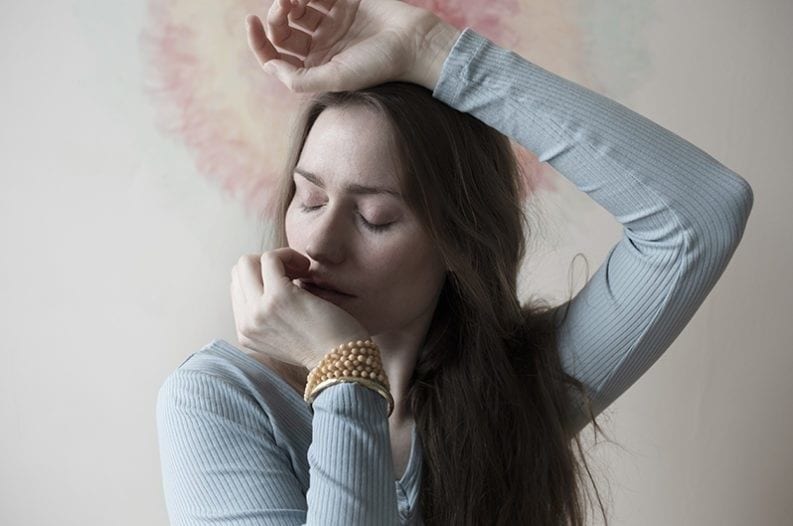Signe Marie Rustad‘s latest album, When Words Flew Freely arrives 1 November from Die with Your Boots on Records. Reminiscent of classic singer-songwriters of the 1970s (Joni Mitchell, Judee Sill), Rustad has a voice and musical vision that’s decidedly of this time and, also, timeless. Listening to her latest single, “A Thousand Lights”, one hears her sense of optimism come through in the wordless, ethereal choruses and in the tune’s sweeping, lush arrangement. If ever there were a song that captured rediscovering hope after a long walk with hopelessness, “A Thousand Lights” is it.
It’s one of several tunes that Rustad penned after emerging from a long period of silence, brought about by personal difficulties that she talks about only in outline. Speaking from her home in Oslo, she recalled the tune’s origins.
“I was in my living room, looking out on the lights of the city,” she says. “It was about finding a sense of peace and comfort, knowing that all these people were living around me, as opposed to walking around in the world alone. It’s about that contrast. You can feel like you’re with all these people and then you can feel like you’re the only one in the world. I think all people feel that at times. But it’s a hopeful song. For me, it’s like someone else wrote it.”
The material on this record came after a period of writer’s block. What broke that free?
The first single from this album is called “Die With Your Boots On”. I wrote that in 2018 when I was first coming out on the other side of some personal difficulties I’d had. I hadn’t written anything for three years.
My booking agency was celebrating its five-year anniversary and I had the urge to write something for them. They’re three guys who have done a lot for the Americana scene in Oslo. I wanted to write something to get going again. I didn’t have any pressure. I sat down to do that and everything hit me. It became very personal. It was written for them and me as well.
How long was it after you’d written “Die With Your Boots On” that you got around to making this record?
I think it was half a year later. I felt like I was ready. I had a lot of material. I just said, “I have to go into the studio and see what happens.” With the previous two records I felt that I had to go into the studio because I had a creative urge. This time I hoped I would have that same feeling and, luckily, I did.
It was scary to think that the last record might be my last one. I’m happy that this one felt right.
When you’re writing songs that are personal in nature do you think, “That’s too personal” or do you say, “I have to say this no matter how much it scares me”?
If there’s something that’s too much like a diary, I put it away. The ones that I continue with are about not giving everything away.
Were you brought up around Joni Mitchell and songs from the British folk scene of the 1970s?
My mom, who grew up in Colorado, had a lot of records from that time. Whe listened to a lot of Motown and soul.
In my early 20s, I discovered Joni Mitchell’s Ladies of the Canyon. For the first time I thought, “Maybe it’s possible for me to do something like this.” It spoke to me in a really strong way. Before that I never thought about being a musician.
How long did it take you to begin sharing songs with other people once you started writing?
I started so late. I was in my early twenties when I went home and my dad had bought a guitar. I couldn’t really play it but I found melodies from when I was a little girl that I would pick out.
I started to write songs that were on my first record soon after. It took me a long time to say that I was a musician.

